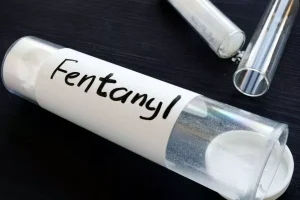
Signs of dangerous, potentially life-threatening drinking include experiencing blackouts, alcohol poisoning, or delirium tremens. Impaired judgment from intoxication increases the risk of accidents, falls, and aggressive or violent behavior. Regularly driving under the influence or having multiple DUIs is another red flag for alcohol abuse. Certain factors can increase one’s risk of developing alcoholism, such as genetics, mental health issues, and environmental influences like peer pressure or trauma. Women may exhibit unique signs, like neglecting family responsibilities or hiding alcohol bottles.

Alcoholic Dementia vs. Wernicke-Korsakoff Syndrome
If you often use alcohol to cope with unfavorable emotions, that probably means you’re drinking too much. A doctor may diagnose alcohol dependence when they see two or more of the above symptoms based on an ongoing pattern of how you use alcohol. Usually this is based on behaviour over the last 12 months or more, but alcohol dependence could be diagnosed based on continuous daily (or almost daily) use of alcohol over a period of at least three months. Do you want to have more fun, to fit in, to cope better with your problems? It’s as easy as taking a drink—if you believe what you see on TV and in movies. The more you regularly rely on alcohol to relax you or make you feel good, the closer you move toward addiction.
- Tolerance can also develop if you drink in the same environment or as a metabolic response that speeds up alcohol elimination.
- Participating in a recovery program with the help of a rehab specialist will give you the greatest chance for long-term sobriety.
- We focus on alcohol use disorder, offering personalized care that fits seamlessly into your life.
- Maybe you’ve been concerned enough that you’ve already thought about or actually tried to cut down on your drinking — and it didn’t happen.
- The good news is that no matter how severe the problem may seem, evidence-based treatment with behavioral therapies, mutual-support groups, and/or medications can help people with AUD achieve and maintain recovery.
Who is at risk for alcohol use disorder?
- This makes it challenging for family members or friends to intervene and help their loved one.
- If you think you may be drinking too much, it can feel daunting to ask for help.
- End-stage alcoholism, also known as late-stage alcoholism, is the most severe.
- They are peer-led organizations dedicated to helping each other remain sober.
- Outpatient programs are often part of aftercare programs once you complete an inpatient or PHP program.
If you or a loved one is suffering from alcoholism, call us to get information about available facilities, treatments, therapies, helpful facts about alcohol abuse, and the path to recovery. It’s easy to underestimate the amount of alcohol you consume daily or weekly, especially in social settings when others around you are doing the same. Because of this, many people deny having a problem how to recognize signs and symptoms of alcoholism and alcohol abuse or believe they can stop drinking at any time. While this may be true for some, stopping cold turkey can not only be difficult but also ill-advised, as the acute alcohol withdrawal syndrome may be life-threatening if not managed properly. Generally, however, the difference between alcohol misuse and AUD lies in looking at how a person drinks in the short term, as opposed to over a prolonged period of time.
Organ Damage
It allows them to unwind from challenges that may arise at school, or with family and https://ecosoberhouse.com/ friends. Drinking can offer teens a sense of happiness, so they continue feeding the habit. They might give up activities, interests, and responsibilities to maintain their habit.
- A BAC of 0.09% to 0.25% causes lethargy, sedation, balance problems and blurred vision.
- It’s time to stop making excuses for your drinking and get the help you deserve.
- Alcohol is a drug, and alcoholism is every bit as damaging as drug addiction.
- Also, the severity of alcohol abuse may play a role in the warning signs a person exhibits.

They Sobriety are best for people who have a high motivation to recover but cannot leave their responsibilities at home, work, or school. The individual can stay in this stage for many years but eventually start showing more disordered behaviors. Harper volunteered for a five-year term on her medical school’s admission committee, has given numerous presentations, and has taught medical students and residents. She is passionate about volunteering for the state medical board’s medical disciplinary commission, on which she has served since 2015.

